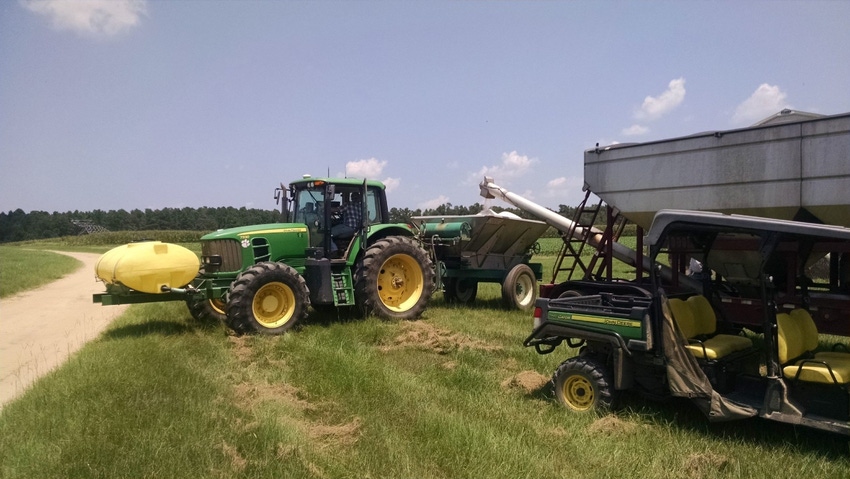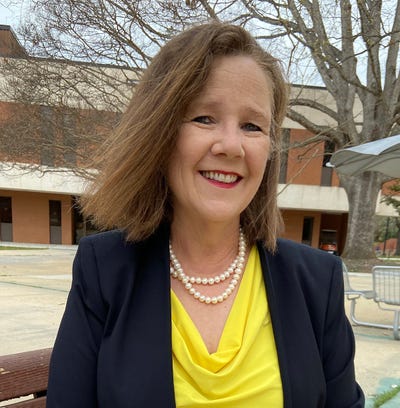
Spring crops are going in the ground and fertilizer prices are skyrocketing.
To help ease the sting of costs on growers, the Clemson University Cooperative Extension Service Precision Agriculture Group has developed two new soil fertility calculators, or apps, to help growers maximize their fertilizer dollars.
The NPK Recommendations Calculator and the Fertilizer Blend Calculator can be used on any device with Internet access. Both calculators are designed to support the needs of large acreage farmers, home lawn and garden applications, and small plot vegetable producers.
The NPK (Nitrogen, Phosphorus, Potassium) Recommendations Calculator uses soil type, crop code and soil test levels for phosphorus and potassium to provide Clemson recommendations for fertilizer applications. These recommendations can be pushed to the Fertilizer Blend Calculator to calculate application rate after accounting for other inputs and ultimately determining suitable fertilizer blends.
“Rate- and cost-optimized fertilizer blends to satisfy the nitrogen, phosphorus and potassium rates for a particular application are calculated based on user-specified, locally available fertilizer products,” said Kendall Kirk, Clemson Extension precision agriculture engineer. “This will save growers money and increase yields by reducing fertilizer overapplication and mitigating fertilizer underapplication. Using these soil fertility calculators will help growers maximize their fertilizer dollars.”
Kirk is part of a robust team of scientists dedicated to developing precision agriculture technologies such as software, sensors, UAVs and robots designed to increase farming productivity and sustainability. The team is housed at the Edisto Research and Education Center in Blackville, South Carolina, which also will be the home of Clemson’s new Center for Agricultural Technology (CU-CAT).
Digital solutions
“Digital solutions are the way of the future even in farming and this shows South Carolina producers Clemson University and Extension personnel are trying to meet those needs,” said Jonatan Croft, Clemson Extension agent and Agronomic Crops Program team member.
Instructions for using each app are included. Shannon Alford, director of the Clemson Agricultural Service Laboratory, said the apps provide research-based information based on grower inputs.
“The NPK Recommendations Calculator is a fantastic tool to supplement soil test reports because it allows for more precise recommendations and applications of fertilizer for crop-specific growth,” Alford said. “This app uses equations rather than tables to generate fertilizer recommendations. These equations are backed by field research, which allow for more specific recommendations.”
Cotton growers can receive recommendations based on multiple yield goal options. These recommendations previously were just available at two yield options. Soil testing is done at the Clemson Regulatory Services Ag Service Lab.
The Fertilizer Blend Calculator can save growers money because of its flexibility to choose inputs based on current costs and the inclusion of a worksheet to accommodate credits before determining input needs.
The apps were developed based on needs indicated by South Carolina growers. Clemson Extension agents met with growers to provide developers with information for the calculators.
Easy to use
“These tools are very easy to use,” Croft said. “Farmers can use the calculators to apply their nutrients most effectively and help incorporate different forms of fertilizers that might be more cost-effective and yield the same overall results.”
Charles Davis, Extension Calhoun County agent and Agronomic Crops Program Team member, said not only will the calculators help growers save money, these digital tools also can help save the environment.
“The bottom line is crops need a certain supply of nitrogen, phosphorus and potassium,” Davis said. “That can’t be changed but having a more accurate blend of nutrients will allow farmers to use less over time. Better blends and more accurate prescriptions will create an environmental benefit in the long run.”
Bryan Smith, Extension agent and agricultural engineer for Laurens County, provided nutrient availability data for animal manures for the project. Smith, who specializes in irrigation and animal manure management, said using the calculators to tailor crop fertilization to actual crop need ensures no excess nutrients are applied.
“This means the crop will use all of the nutrients applied over the growing season and none will be left in the soil to possibly leave the field by movement downward through the soil or movement over land with the soil after the crop is harvested,” Smith said. “These calculators are great tools that will help farmers save money, protect water quality and grow more productive crops.”
In addition to these apps, the Clemson Precision Agriculture group also has created apps to help with drip fertigation, grain storage, injection pump settings and more. For information, go to https://bit.ly/CU_WebApps.
Source: Clemson University, which is solely responsible for the information provided, and wholly owns the information. Informa Business Media and all its subsidiaries are not responsible for any of the content contained in this information asset.
About the Author(s)
You May Also Like






